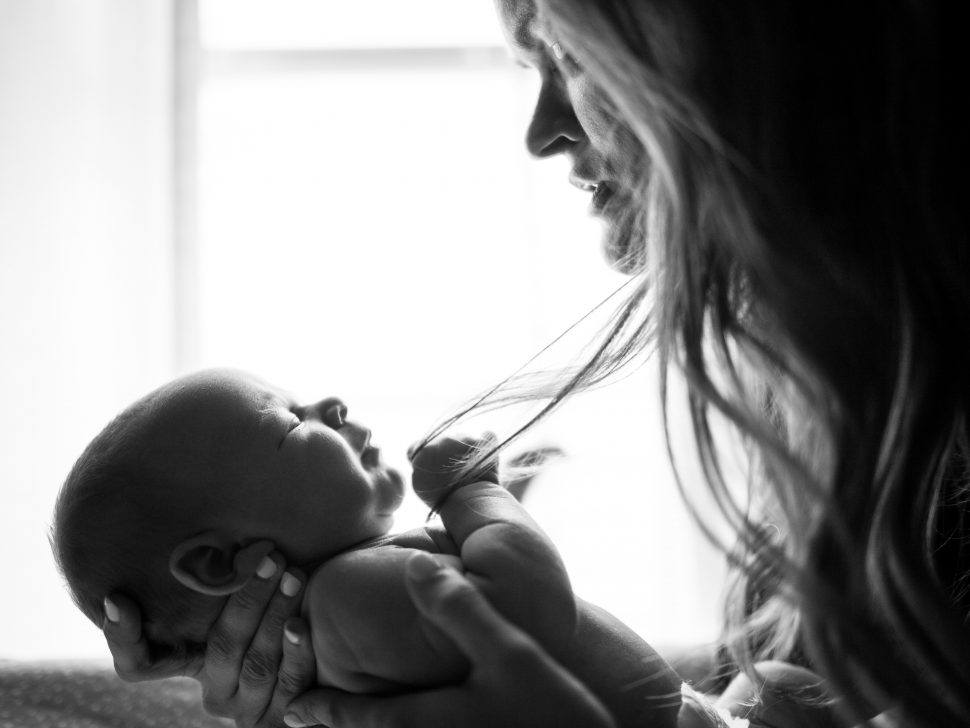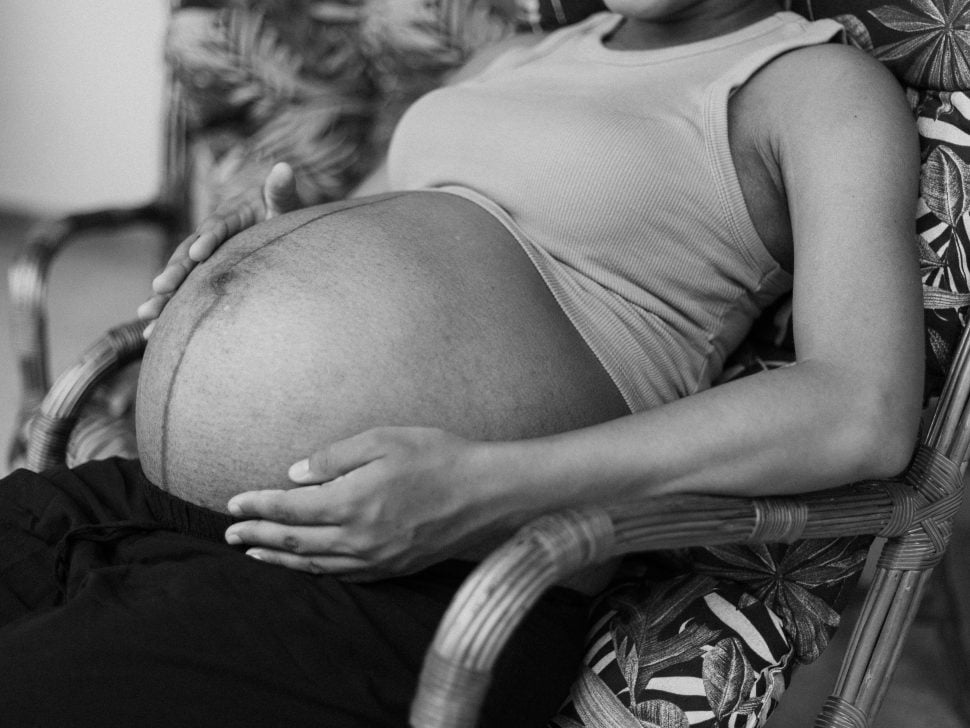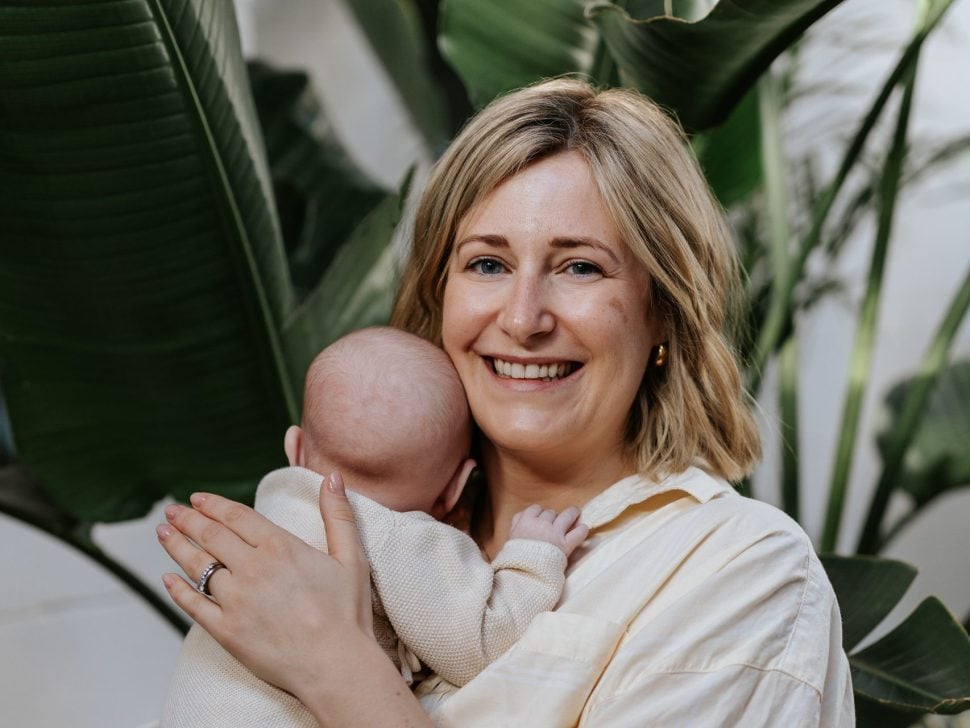Is This Normal? The Emotional Rollercoaster of Pregnancy and Motherhood.
What No One Tells You About Mental Health in Motherhood
Expert insights from Lotus Health and Psychology on navigating pregnancy and postpartum wellbeing
Mental health during pregnancy and postpartum is something many mothers don’t expect to struggle with, but it’s more common than we think. In this interview with Lotus Health and Psychology, we explore what perinatal mental health support really looks like, why anxiety is often overlooked, and how to take the first steps even when you feel like you’re running on empty. Whether you’re expecting, newly postpartum, or years into motherhood, these insights might be the nudge you didn’t know you needed.
What are some of the most common mental health challenges you see during pregnancy and the postpartum period that people often don’t expect or talk about?
Most people have heard of postnatal depression, but they probably don’t realise that for a lot of mums, this starts during pregnancy, then continues into the postpartum period. This is why we now tend to refer to perinatal depression (which means the entire period of time that covers pregnancy and after the birth of the baby). It’s really important to be alert to low mood even when you are still pregnant. A bad day here or there is typical, but when they start “joining up” that’s not a good sign.
Most people also don’t realise how common anxiety is during pregnancy and postpartum. This can be triggered by previous infertility, or because you’ve had a miscarriage/pregnancy loss, or sometimes, just because, but perinatal anxiety is probably twice as common as perinatal depression.
Finally, lots of people think about PND in Mums, but they forget that it can affect dads too. And unfortunately, if one parent is depressed during/after the pregnancy, they increase the risk that the other will also become depressed.
What would you say to the mother who’s afraid to speak up because she worries she’ll be judged, made to feel something is wrong with her or that it won’t help her anyway?
Not everyone is going to understand perinatal depression, and lots of people will tell you that feeling low is “normal” but you really aren’t supposed to ‘suffer in silence”. You know yourself best. If you think you’re “not right”, you are probably correct. Either way, there is no harm in talking to a good GP or reaching out to a perinatal psychologist for a mental health check in – the worst thing that they would say is that you’re actually ok!
When you’re already running on empty, the thought of booking a mental health appointment can feel impossible. What advice do you have for making that first step feel less intimidating?
Speaking to a psychologist can feel really scary, particularly if you’ve never done it before, but most people walk away feeling like a “weight” has really lifted. Talking helps. If it feels like too much to contact a psychologist, maybe just start by speaking to your GP. or even a friend that you really trust. The most important thing is to talk to someone and get some help before things get too bad.
Mental health becomes relevant not just in times of crisis. What does good emotional and mental care look like in pregnancy and early motherhood when things are ‘okay’?
We need to remember that mental ‘health’ is not just the absence of mental ‘illness’ – it’s better than neutral – it’s actually feeling good. Pregnancy can be exhausting, but it’s just the beginning… the marathon really starts once your baby comes home, so it’s important that we keep you feeling good and have plenty in “the tank”.
Positive mental health looks like anything which builds up that tank – and ensures you are feeling happy, healthy and resilient.
How important is it to have a “mental health village” before birth, and who might be in that village besides a psychologist?
It’s so critical to have a village as we embark on parenthood, and a mental health village is definitely part of that. This might be a great perinatal psychologist, but it might also be your GP, or even your obstetrician and midwife team. Hopefully, this village might also include your family (especially your mum, if she is in your life and knows how to support you), and of course, your friends. If you have a partner, they should be at the centre of that village – cheering you on and holding you up on the days you need it. Your mental health village could include anyone who you know will let you check in, and will help you get support – without fear of judgement.
Can you share what role hormones, identity shifts, and sleep deprivation play in emotional wellbeing and how mothers can honour that without blaming themselves?
All of these factors can play a significant role in how we feel during and after pregnancy – I could talk for hours about each of them! Pregnancy and the shift in role of becoming a mother is a LOT. You are inevitably going to have tough days without really knowing why – thats just one of the reasons to have that mental health village, so you can lean on someone who can help you reflect on whether how you are feeling is just a momentary glitch or something more concerning – and support you to get help if it turns out you need to.
Tell us a little about your clinic… who do you support, and what can a new or expecting mother expect when they walk through your doors (or reach out virtually)?
At Lotus Health and Psychology, we focus on providing compassionate, “wrap-around” care from our multidisciplinary team of practitioners. Our team provides support through the perinatal period and parenthood, as well as through other life challenges in childhood, adolescence, and adulthood.
Each Lotus Health and Psychology clinician is expertly trained to provide support through the perinatal period. We focus on providing compassionate, evidence-based interventions to families wherever they are on their fertility, pregnancy, and parenting journey. This includes, but is not limited to, providing care for people:
- Needing support during treatment for infertility
- Who face the life of involuntary childlessness
- Who are undertaking donor conception and surrogacy (and also working with those born as a result of these arrangements)
- After emotionally and physically traumatic birth experiences
- Who have experienced miscarriage, stillbirth or neonatal death
- Who are undertaking a pregnancy subsequent to previous obstetric trauma or perinatal loss
- Struggling to connect with their babies due to postnatal depression and anxiety
We recognise the specific needs of families faced with pregnancy decision making after diagnosis of fetal abnormality, as well as those who might not “fit” typical obstetric and maternity services, such as solo parents, those having their “rainbow baby” after loss, and LGBTIQA+ parents.
What types of therapy or support do you offer, and how are they tailored to the unique experiences of perinatal women?
Our clinicians provide a broad range of psychological interventions, including CBT, ACT, schema-focused therapy, and EMDR. Our clinicians provide trauma-informed and neuroaffirming care. We know that there is no such thing as a “one-size fits all” approach, so we spend our initial session getting to know why each client has attended, and building a plan that ensures their individual needs are met.
Do you find that mothers need different types of support at various stages, say, pregnancy vs. 6 months postpartum vs. returning to work, and how do you work with that?
Mums (and dads!) definitely need different support at different stages of the parenting journey – it’s one of our strengths as a clinic, that we are able to support people no matter where they are. We understand that your needs will be different whether you are experiencing infertility, have already achieved a pregnancy, are a brand new parent, or even if you are “a few years in” to the whole parenting job – it ok, we will meet you where you are.
Support can feel out of reach for some mothers due to financial stress. What would you say to a mum who knows she needs help but can’t afford to see a psychologist? Are there lower-cost or access options you’d recommend?
It’s natural to feel stressed about your outgoing costs when you’ve just had a baby, but it’s also essential to prioritise your psychological wellbeing. But a good first step is always to talk to your GP – they will be able to help guide you to the services near you that might be able to help. PANDA is also a great resource (they have online and phone support) to start you on your journey to getting the help you need.
You’ve worked with many mothers. What’s something you wish every woman knew or believed about her mental health in motherhood?
Every woman needs to remember that being a parent is HARD. There will be days when parenthood will really test you. There will be days when you don’t much like your child, or being a mum… or yourself. There might be more of these days if there is other stuff going on for you (like relationship issues, or financial stress, or family problems). But having days when you struggle doesn’t define you, or what kind of mother you are… what matters is what you do about it. The good news is, you don’t have to get through those tough times alone – if you build that village, then there are many hands to swoop in and help hold you up.
Learn about the support you didn’t know you needed.
We have cherry picked the most useful resources for you, so that you don’t have to waste precious hours searching.

Article - Dr Angela Marshall (Womb to World)
Rebuilding Hormonal Balance in the Fourth Trimester | Postpartum Recovery & TCM Support
The fourth trimester is a critical window for postpartum recovery and hormonal balance. After birth, rapid postpartum hormone changes affect mood, energy, sleep, and emotional wellbeing. Understanding how to support your body during this time can make a profound difference in how you heal, rebuild, and feel in early motherhood.

Article - Louise Barton & Elisha Wildblood (Not Another Onesie)
Postpartum Support Australia: How to Plan Pregnancy, Birth & Fourth Trimester Care
The reality is this: while Australia has excellent maternity care, structured postpartum support in Australia is not automatically built into the system. And yet postpartum is when support matters most. This guide will show you how to organise pregnancy support, birth support services, and most importantly, proactive postpartum support in Australia, so you are not left navigating the fourth trimester alone.

eBook - Louise Barton & Elisha Wildblood (Not Another Onesie)
‘Fill The Freezer’ – Recipes to gift or make ahead for yourself
This recipe collection has been created with you in mind: quick to make, freezer-friendly, and packed with ingredients that fuel tired bodies and busy minds. Each one can be baked ahead of time for yourself or wrapped up and given as a thoughtful gift.

Article - Louise Barton + Elisha Wildblood (Not Another Onesie)
End-of-Year Reflection Guide for Mums (Free Journal Prompts + Playlist)
The end of the year can feel like a whirlwind, especially for pregnant and postpartum mothers. While the world speeds up with celebrations, to-do lists, family dynamics, and pressure to “make it magical,” many mums quietly feel stretched thin, overwhelmed, or emotionally pulled in a dozen directions. If this resonates, you’re not alone. This gentle guide is here to help you slow down, take a breath, and soften into a kinder ending. A moment to honour the year you lived, the glimmers that kept you going, and the version of you that is emerging.

Article - Kendra Greig (The Homecoming Concierge)
Inside the Postpartum Home Preparation Service Transforming New Parents’ First Days
Bringing a newborn home is one of the most transformative moments in a family’s life, but it often arrives with overwhelm, exhaustion, and a steep learning curve. While many expectant parents spend months preparing for birth, far fewer have the time, support, or energy to prepare their home for the postpartum period. That’s where the NEST postpartum home preparation service steps in. Designed to create a soft landing for new parents and parents travelling with young children, this offering blends practical support, newborn home organisation, nourishing postpartum food, thoughtful touches, and a deep understanding of what new mothers and families truly need in those early days. We interviewed Kendra Greig the founder of NEST, to explore what inspired this unique service, what families can expect, and how a beautifully prepared home can ease the transition into newborn life.
You may also be interested in...
Learn about the support you didn't know you needed.
We have cherry picked the most useful resources for your fourth trimester so that you don't have to waste precious hours searching.

Article - Elisha Wildblood and Louise Barton (Not Another Onesie)
The Silent Struggle of Motherhood
Becoming a new mother is a beautiful and life-changing experience, but it can also be very challenging.

Article - Melissa Miceli (Motherscape)
Occupational Therapy for Mothers: Support for Postpartum Recovery and Matrescence
During the postpartum period, many women experience challenges in daily routines, self-care, and identity. Occupational Therapy (OT) for mothers offers practical and emotional support to help women navigate these changes, rebuild confidence, and find balance in everyday life.

Article - Dr Mandy Godwin (Mums in Bloom)
Navigating the Emotional Side of Pregnancy and New Motherhood
The emotional side of pregnancy and new motherhood doesn’t come with a manual, but thankfully, Mandy Godwin, a perinatal psychologist in Australia and founder of Mums in Bloom, has created two free guides to help mums navigate this tender time and support their emotional wellbeing during pregnancy and postpartum.

Interview - Louise Barton + Elisha Wildblood (Not Another Onesie)
In Conversation With Vicky O’Rourke from Connect Baby
Who's doing what at home? The truth about domestic load & how to lighten it together.

Interview - Caroline Bilkey (Mummy's Whispers)
Why Hiring Postpartum In-Home Support Can Transform Your Recovery
If I had my way, support would be non-negotiable and, in an ideal world, would have government funding, so everyone can access the help we all deserve. We can shape our families' and therefore babies' complete outcomes (and lives!) by providing education, but above all, support in those early days. It is essential for a mother who has given birth to rest and recover.









